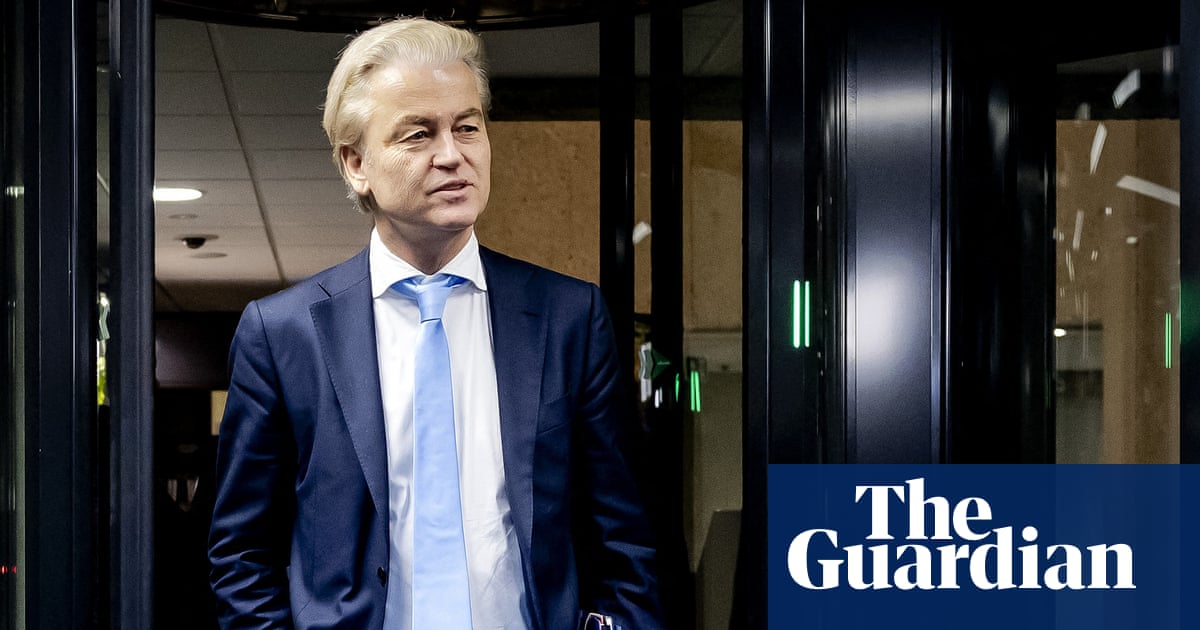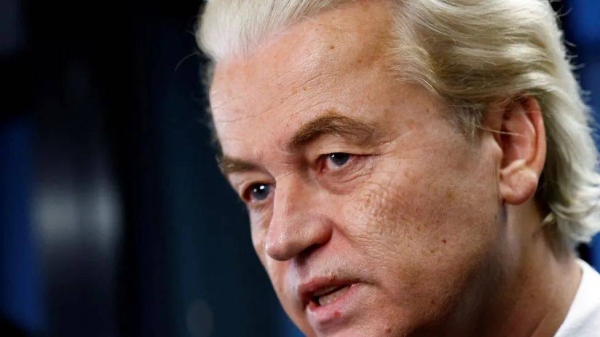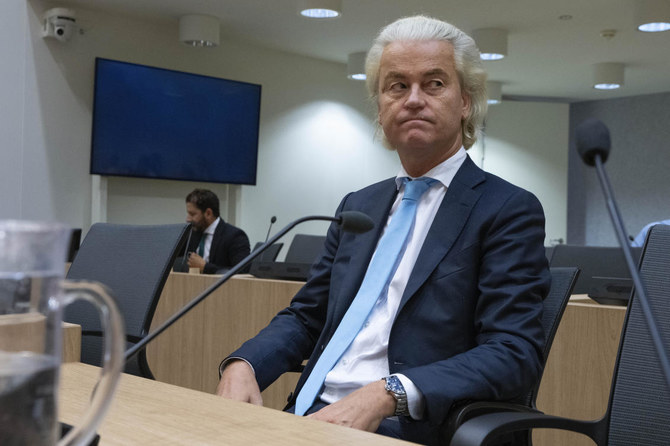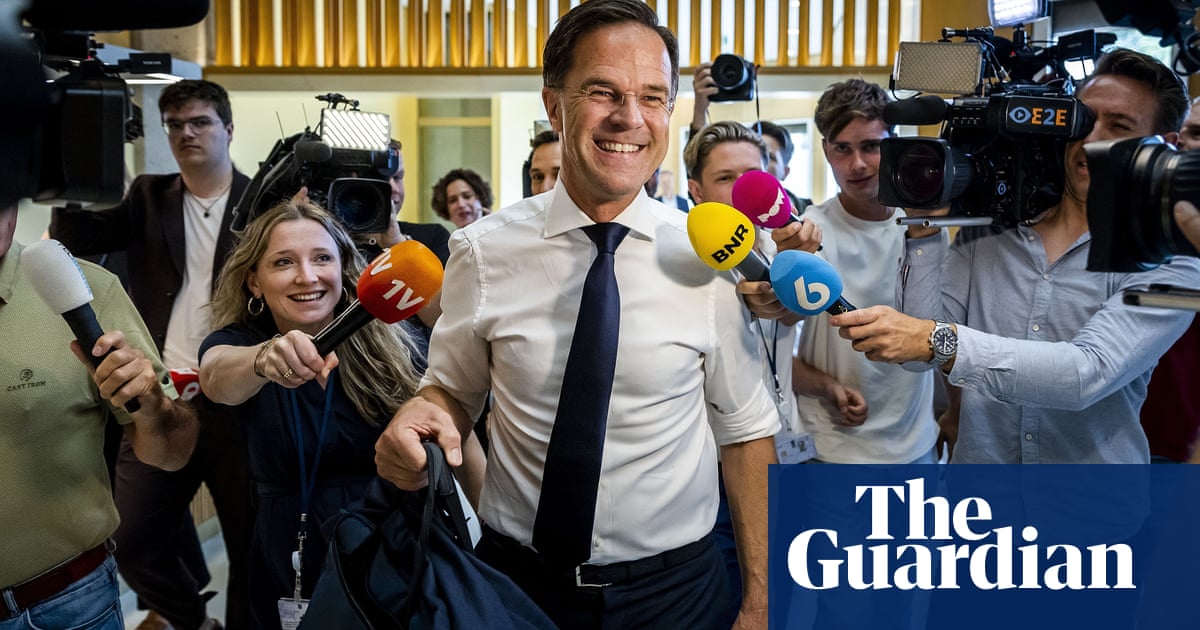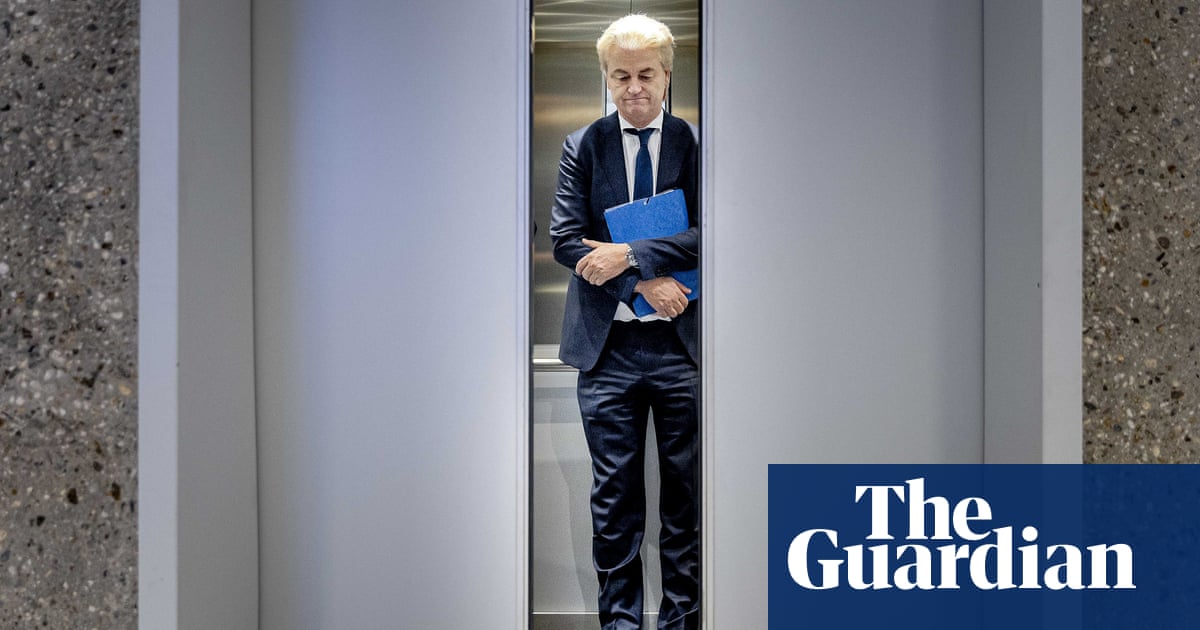
Geert Wilders’ chances of forming a majority government in the Netherlands have been dealt a heavy blow after one of the far-right leader’s three potential partners abruptly withdrew from coalition talks citing concerns over public finances.
Wilders, whose Freedom party (PVV) shocked Europe by finishing first in elections last November, said on X he was “unbelievably disappointed” by the decision of New Social Contract (NSC) to declare it was “finished” with the current round of talks.
The centrist party’s leader, Pieter Omtzigt, did not rule out lending parliamentary support to a minority government, but appeared to have excluded any possibility of formally joining the putative right-wing coalition, the public broadcaster NOS said.
Dutch media reported that Omtzigt, a crusading former Christian Democrat MP who campaigned on a platform of “good governance” and “doing politics differently”, had been shocked by confidential cabinet briefings on the state of public finances.
“NSC does not intend to make promises to the Dutch people that it already knows to be empty and that cannot be fulfilled by the next government,” he said in a letter to party members. “Castles in the air are not the basis for a secure existence.”
Ronald Plasterk, the former minister who is acting as an intermediary in the talks, had already flagged finances as a key stumbling block after economic experts warned that the new coalition would need to find €17bn (£14.5bn) in structural spending cuts.
Wilders’ PVV won a shock 37 seats in the election but fell far short of a the 76 seats needed for a majority. His preferred coalition was with the NSC, which won 20 seats, the BBB agrarian party (seven seats), and the centre-right VVD party (24 seats).
The far-right leader had already pledged to drop anti-constitutional measures in his manifesto, such as bans on mosques and the Qur’an, as well as proposals rejected by his potential partners, such as a “Nexit” referendum on leaving the EU.
Without NSC, however, Wilders appears to have no chance of forming a majority government. “The Netherlands wants this cabinet, and now Omtzigt is throwing in the towel while we were still in talks until today. I don’t get it at all,” he said.
Dilan Yeşilgöz-Zegerius, who succeeded the outgoing prime minister, Mark Rutte, as leader of the VVD, said she was “very surprised” by Omtzigt’s decision, adding that she hoped the four parties could “sit down together soon to hear what exactly is going on here”.
Caroline van der Plas of the populist BBB called the NSC leader’s withdrawal “baffling”.
If no combination of parties can agree to form a coalition, new elections are an option – although polls suggest support for the PVV has surged since November.




